Hindutva Policies and the State of Minorities in India
Indian claims of secularism unravelling under Modi’s regime: Dr Shireen Mazari
The extremist ideology of Hindutva has found new face and feet under BJP’s leadership, revealing the state’s true face while unravelling its claim of secularism in the process. In India the lower caste Hindus and minorities like Sikhs, Muslims, and Christians were being discriminated and treated as inferior citizens of state.
The thoughts were shared by Dr Shireen Mazari, Federal Minister for Human Rights, while addressing the international seminar ‘Hindutva Policies and the State of Minorities in India’. The full-day program, which was organized by Institute of Policy Studies (IPS), Islamabad on February 19, 2019, was addressed alongside Dr Mazari by Pakistani Dallit leader Senator Engr. Gianchand, Dr Akis Kalaitzidis (USA), Dr Nitasha Kaul (UK), Murtaza Shibli (from Indian Occupied Kashmir), Dr Mujeeb Afzal, Amb (r) Jalil Abbas Jillani, Amb (r) Zamir Akram, Dr Waqar Masood and Dr Asma Khwaja.
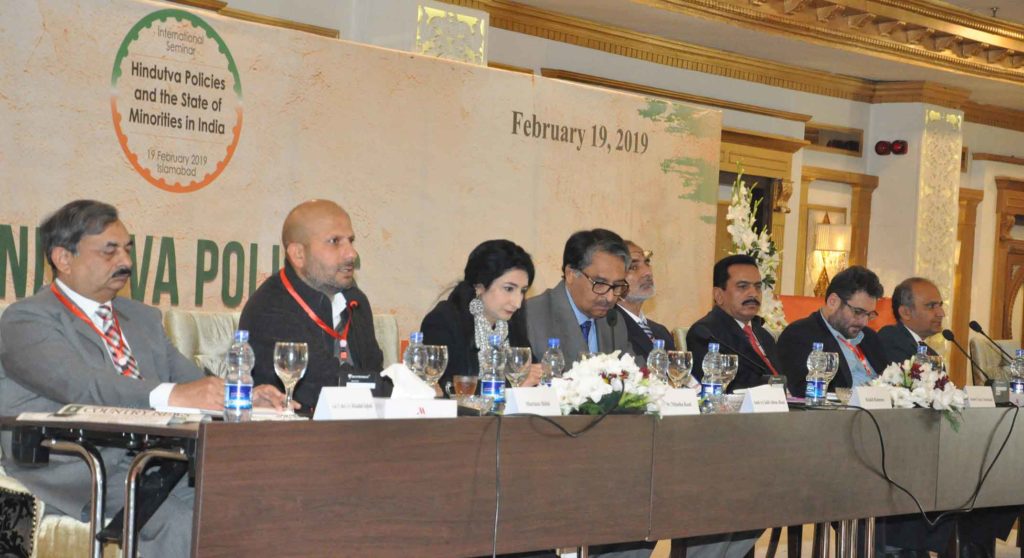
The plight of Muslims of Indian held Kashmir, according to Dr Mazari, was particularly a major concern for Pakistan where the Kashmiri struggle of independence was being repressed by all means giving it a color of religious extremism issue, whereas in reality it was about the struggle for their right of self-determination. Even as per the UN resolutions, the federal minister said, Jammu & Kashmir was an occupied state, and from the ongoing suppression to the attempts of changing the region’s demographics, everything that was being done in Kashmir should be seen as a war crime.
The speaker was also critical of UN’s role over Kashmir’s issue, maintaining that while UN resolutions for East Timor were identical to the ones on Kashmir, the later was being neglected in execution merely for being a Muslim minority.
Earlier, Executive President of IPS Khalid Rahm an presented the context of the seminar in his opening note maintaining that the need of studying the rising phenomenon of Hindutva had increased manifold under the present Indian regime as the support and state machinery being provided to extremist forces by the Indian government was a matter of concern for the whole region.
Dr Mujeeb Afzal presented the background of ‘Hindutva’ and shed light upon the pressures and insecurities the ideology was creating within India where the minorities like Muslims and Christians had no choice but to accept the supremacy of Hindus in the country. He said that the phenomenon was also set to have an impact outside the country’s boundaries.
Ambassador (r) Zamir Akram was of the view that the purpose behind current Indian policies was to provide a harnessing ground to further and foster the exclusionist and extremist Hindutva ideology. He said that the Hindutva-oriented state needed a common enemy towards which it wished to direct the united hatred of the numerous Hindu castes and segments. Though all minorities are being subjected to ill-treatment, the enemy so designated are primarily and fundamentally Muslims, and there is evident rise of hate and extremism against them in India.
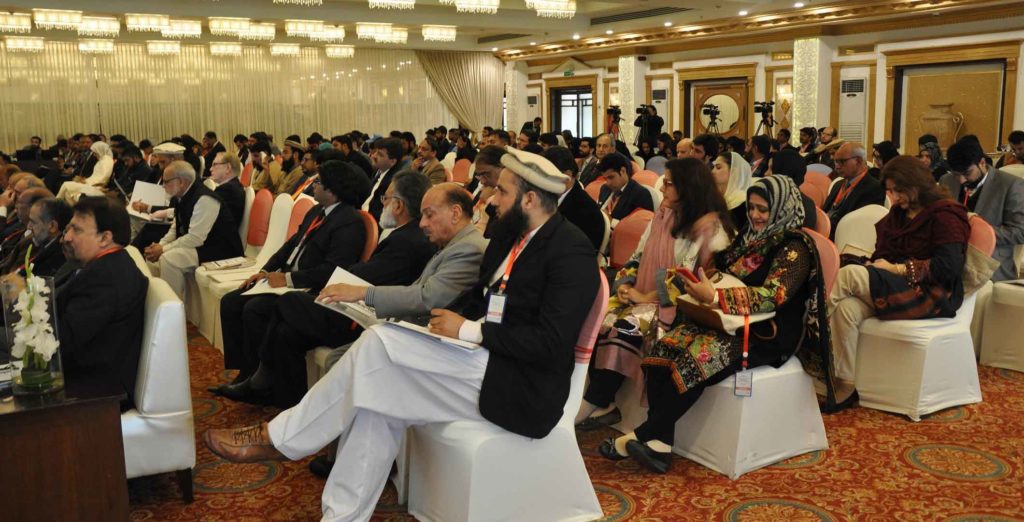
Murtaza Shibili, in his speech titled ‘Hindutva and the State of Minorities in India: Responses from Within’, opined that there was nothing wrong in being a religious country following one’s religion/ideology, but the problem starts when that ideology promotes policies that don’t safeguard the rights of minorities and serve the interests of the hegemonic power instead. He said that there was no secret that Hindutva aims at making India a Hindu country by 2023, the tactics they use for the purpose are reconversion, Love Jihad and Ghar Wapsi.
Dr Waqar Masood spoke on the topic of ‘The Political Economy of Hindutva’, maintaining that the attempts were being made to alter and rewrite the history in India under the present regime, injecting the new ideas suiting the dominance and rise of Hindutva into the minds of nation’s youth. He said that Ghar Wapsi and Love Jihad for instance were the terminologies that evolved during Modi’s tenure, serving the ideology of Hindu extremism while suppressing the interests of other minorities.
Dr Nitasha Kaul pointed that Hindutva in reality was a cultural ideology and not a political one, but when the cultural majority becomes a political majority, it creates problems as it seeks authoritarianism to remain in power. She said that in academia, people study the economy and society in separate boxes whereas these should be studied in one box because both economic and social change affect the people equally.
Dr Akis Kalaitzidis spoke about the responses from the world over Hindutva policies. He said that the Hindu community in the U.S. had been restructuring itself in form of organizations, and some of those organizations were even trying to influence the U.S. foreign policy in terms of politics as well as religion. These communities also back the Trump’s policy against the Muslims as well as Pakistan, and the results of such an alliance can become chaotic and problematic.
Dr Sufi Hussain, who was speaking on behlalf of Dr Sonu Khangrani on the topic of ‘Hindutva and State of Minorities: Dalit Perspectives’, said that Hindutva policies were based on promoting single Hindu ideology and were being forced onto Dalits, who have always been a target of Hindu supremacist conduct. By provoking Dalits in the name of common Hinduism, India is merely sacrificing their lives and identity for their own interests. Despite the fact that the Indian constitution claims to protect the rights of minorities, the institution filled in by the Hindu fascists violate the laws by not taking actions against the abuses being done with the minorities.
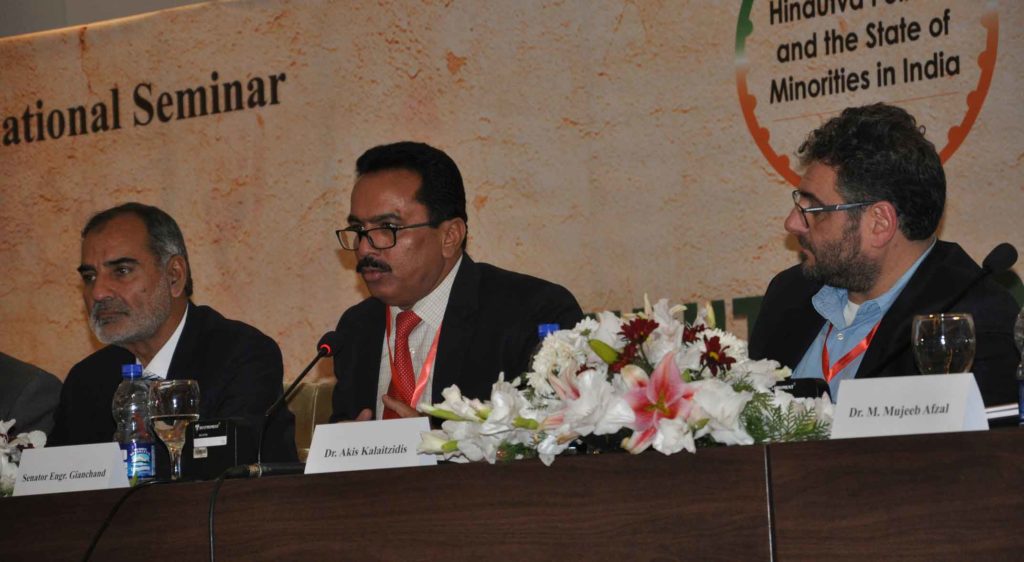
The prorgram’s guest of honor Senator Gianchand viewed that Hindutva was not a recent phenomenon; it in fact was an extension of Manusmrti. He said that the BJP leadership merely wants to impose the rules of Manusmrti in India, which had always caused troubles for the Dalits and non-Hindus in India. According to a recent report by National Human Rights Commission, he revealed, a crime is committed against Dalits in every 18 minutes in India.
The chair of the final session Ambassador (r) Jalil Abbas Jilani endorsed other speakers in the end, stating that a new wave of Hindutva was currently being witnessed under the present Indian leadership. He questioned whether the Hindutva philosophy will do a good to India or will it create societal gap? What will be the implications of Hindutva policies domestically? And what will be the implications of such an extremist philosophy on Pak-India relations?
The former ambassador concluded his speech stating that the best way forward in any case would be to have dialogues within communities in India, as well as between India and Pakistan, as this remains to be the only way to create an environment that is conducive to peace and harmony in the region.
The seminar also featured the launch of the book ‘Hindutva: Rising Extremism in India’, which documented the speeches and papers presented by speakers on the same topic in a similar international seminar organized by IPS the preceding year. A copy of the book was also presented to the seminar’s chief guest Dr Shireen Mazari by Air Cdr (r) Khalid Iqbal during the session.
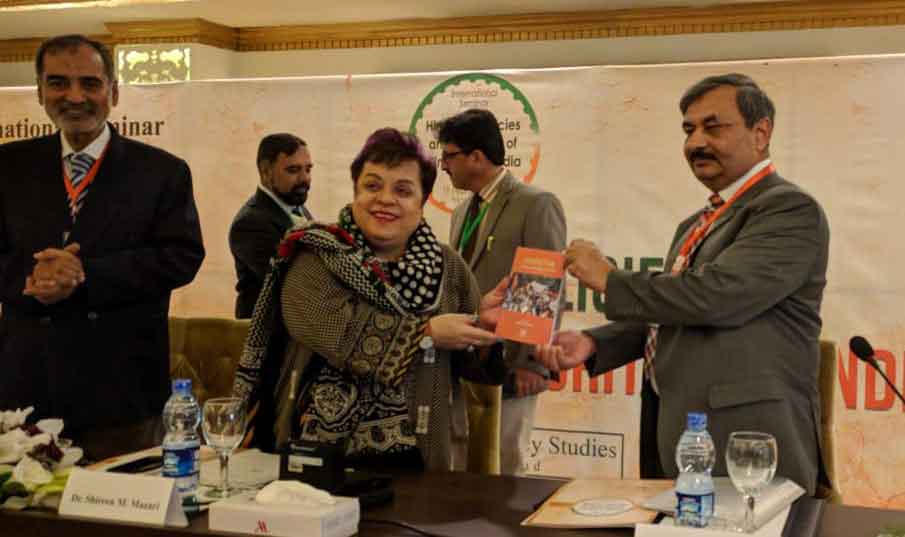


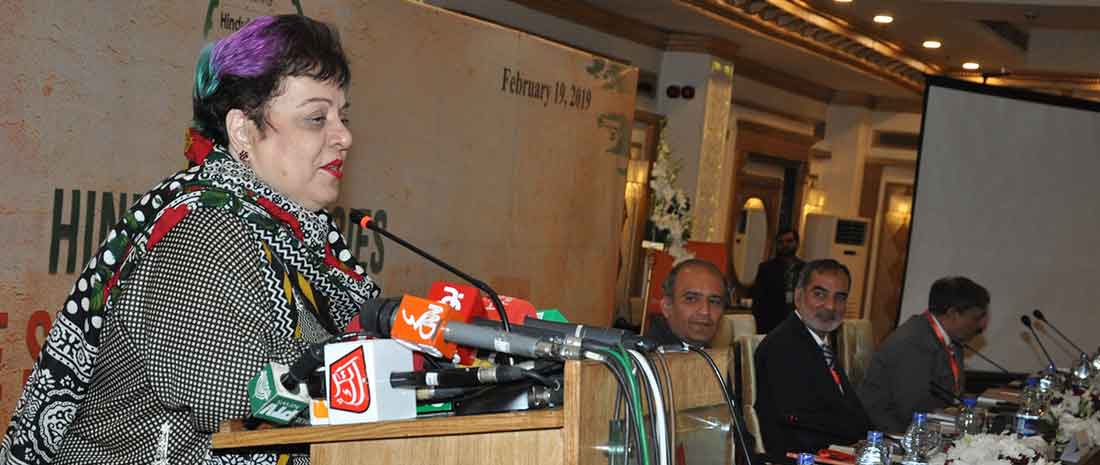




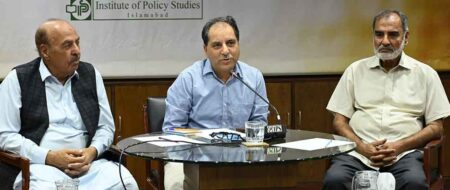





Comment (1)
the whole world should be aware of this ideology, it is more dangerous than atom bomb, cause it might result in destruction of regional peace.
Comments are closed.